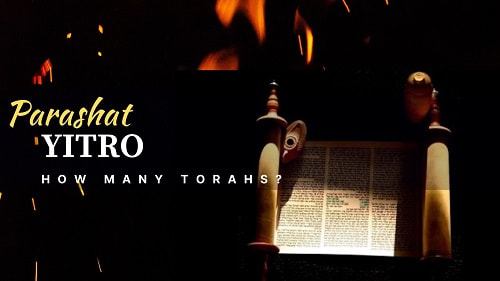|
By: Rabbi Menashe Sasson
Reporting from Jerusalem, Israel
The Torah, in Parashat Yitro, commands the Jewish people to establish courts of law.
Likewise, non-Jews, that is, the descendants of Noach — all of humanity — were also commanded to establish court systems. Maseket Sanhedrin 56a. According to some reports, there were, as of December 31, 2020, slightly more than 6.8 million Jews living in the modern-day state of Israel, a number which reportedly represents a little less than half of worldwide Jewry. https://www.jewishvirtuallibrary.org/latest-population-statistics-for-israel Thus, at first glance, the misva of establishing a Jewish court system might seem to be one that, as a practical matter, cannot be performed by most of the Jewish people in the world. In fact, there is a concept in Jewish law — dina demalkhuta dina (the law of the land is the law) — which seems to make sense, given that most Jews, both currently and throughout most of Jewish history, do not live, and have not lived, in a Jewish state (country). However, notwithstanding that the Jewish people have not had political independence for most of its more than 3,000 year history, Jewish law, in unprecedented fashion, has not only endured, but has continued to evolve and develop because Jews managed to retain judicial autonomy, even in exile, under what are generally referred to as “Charters of Privilege.” A “Charter of Privilege” was an arrangement whereby the ruling government allowed a minority group which resided within its borders to govern itself, to include operating its own independent legal system. To pay for this privilege, the minority group collected taxes from its members, which it then paid over to the ruling government. Jewish political independence, including judicial autonomy, existed in the Land of Israel from shortly after the crossing of the Jordan river through the destruction of the Second Temple. Jewish judicial autonomy continued even for a time even after the destruction of the Second Temple, under the functional equivalent of a charter of privilege. Meanwhile, Jewish judicial autonomy existed even in exile, under charters of privilege, in places like, for example, Babylonia, Spain, and Poland. The jurisdiction of Jewish courts encompassed both private civil matters (contracts, torts, family law, etc.) and public law (government administration, taxes, etc.), and in some locales, included criminal law matters. It was under these circumstances that the body of Jewish law developed over the centuries. It was also under these circumstances that the Rabbis instituted the prohibition against Jews litigating against fellow Jews in non-Jewish courts (Arka’ot Shel Goyim). The Jewish Emancipation, beginning in the late 18th century, resulted in the loss, in most places (notable exceptions include Turkey and North Africa), of Jewish judicial autonomy and, with it, the ability of Jews to fully perform the misva found in Parashat Yitro of establishing and operating a Jewish court system. In 1948, with the founding of the State of Israel, the Jewish people regained not just judicial autonomy, but for the first time in almost 2,000 years, national sovereignty over at least a portion of its homeland. Unfortunately, however, as good as things are now, as compared with the past 2,000 years, all is not as it should be. Although the Jewish people now possess national sovereignty, there nevertheless still exists much work to be done to fulfill the misva of Parashat Yitro. The good news, however, is that, if you and your family do not already live in Israel, you can, by making Aliyah, participate in the national civic life of Israel by working with your Jewish brothers and sisters who are attempting to fulfill the misva of establishing a judicial system which has as its members persons who decide cases in a manner which is consistent with judges who “fear God.” Shabbat Shalom!
Copyright © The Israel Foundation. All Rights Reserved.
0 Comments
Your comment will be posted after it is approved.
Leave a Reply. |
THE ISRAEL FOUNDATION


